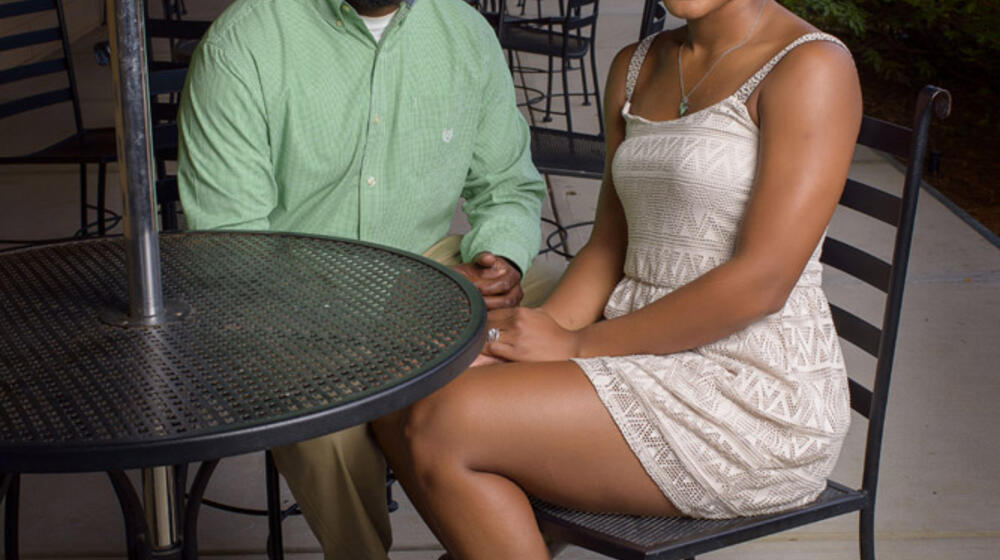Extension Matters
Volume 3 Number 4
4-H: Where Are They Now?
Q&A WITH ABIGAIL MANGUM
PHOTO BY KEVIN HUDSON
Tiara and Jeremy Brown, former 4-H’ers from Clay and Oktibbeha Counties, respectively, discuss how the 4-H youth development program has something for everyone.
Tiara and Jeremy are both from families that were very involved in 4-H. They met while attending Mississippi State University, graduated, and married. Jeremy went on to work as a mechanical engineer at Yokohama Tire Manufacturing in West Point, and Tiara works as a special education teacher at Central School, also in West Point.
Q: Fill in the blanks:
4-H taught me to…
TB: be very open-minded. There were some things I never would have tried and people I never would have met if 4-H hadn’t put me in that environment.
JB: improve my ability to speak publicly. That’s one of the biggest things I got out of 4-H, and I think it’s an important skill to have.
4-H taught me to stop…
TB: being lazy. You don’t win competitions by being lazy.
JB: being shy. I learned how to start confidently meeting and interacting with people.
Because of 4-H…
TB: I am very diverse.
JB: I am a leader.
If I hadn’t been in 4-H...
TB: I wouldn’t know how to speak in front of people. Today, I have no problem speaking in front of large groups of people.
JB: I don’t think I would have as many leadership skills and abilities as I do today.
Q: How do you keep the 4-H motto—”To Make the Best Better”—now?
TB: I have the privilege of working with special needs children, and I have to constantly be on my toes looking for new and innovative ways to help my kids think about things differently and to help them grow every day.
JB: My job consists of me constantly improving things at work, which also includes maintaining the company’s superior standard of work. I also hold a leadership role, so I have the responsibility of going out and helping other employees produce the best results.
Q: How did 4-H contribute to your leadership skills?
TB: I held a leadership position at the county level, which helped me to hold leadership roles later in my life, especially when I played varsity sports in high school.
JB: I was on the leadership team in 4-H, and, by having that opportunity, I was able to develop and practice leadershipskills while learning to speak in front of thousands of 4-H’ersat conferences.
Q: What do you wish people knew about 4-H?
TB: I wish they knew that it’s about more than just judging pigs and cows. In 4-H, you learn about leadership, public speaking, open-mindedness, social skills, and competitiveness.
JB: I wish people knew about what exactly 4-H is. A lot of people are unaware of all of the benefits and how kids are able to grow through the knowledge and experience that 4-H has to offer.
Q: Why should young people join 4-H?
TB: With 4-H, you have everything to gain. There’s a way to accomplish anything you can think of, whether it be farming, fashion design, or public speaking. 4-H also provides kids with an after-school activity that gives them something to look forward to while keeping their minds active.
JB: 4-H has a lot of benefits that everyone can enjoy. Leadership and social and life skills are just a few that you can gain through 4-H.
Interview answers have been edited for space and clarity.
